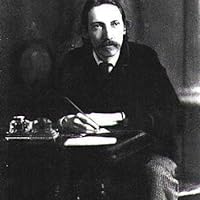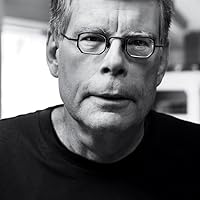Phrases Quotes
Quotes tagged as "phrases"
Showing 1-23 of 23

“People in France have a phrase: "Spirit of the Stairway." In French: esprit d'Escalier. It means that moment when you find the answer but it's too late. So you're at a party and someone insults you. You have to say something. So, under pressure, with everybody watching, you say something lame. But the moment you leave the party . . .
As you start down the stairway, then - magic. You come up with the perfect thing you should've said. The perfect crippling put down. That's the Spirit of the Stairway.”
―
As you start down the stairway, then - magic. You come up with the perfect thing you should've said. The perfect crippling put down. That's the Spirit of the Stairway.”
―

“Kind words dispel clouds of fear like the moonlight's smile on water.”
― The Little Book of Muses
― The Little Book of Muses

“Prose consists less and less of words chosen for the sake of their meaning, and more and more of phrases tacked together like the sections of a prefabricated hen-house.”
― Politics and the English Language
― Politics and the English Language

“As he once wrote of Kipling, his own enduring influence can be measured by a number of terms and phrases—doublethink, thought police, 'Some animals are more equal than others'—that he embedded in our language and in our minds. In Orwell's own mind there was an inextricable connection between language and truth, a conviction that by using plain and unambiguous words one could forbid oneself the comfort of certain falsehoods and delusions. Every time you hear a piece of psychobabble or propaganda—'people's princess,' say, or 'collateral damage,' or 'peace initiative'—it is good to have a well-thumbed collection of his essays nearby. His main enemy in discourse was euphemism, just as his main enemy in practice was the abuse of power, and (more important) the slavish willingness of people to submit to it.”
―
―

“For myself, I favored the abstract. I collected not just obsolete terms and words, but ideas.”
― Shades of Grey
― Shades of Grey

“Lovely phrases had lit candles in her mind, one after the other, till she felt intoxicated with the brightness.”
― Island Magic
― Island Magic

“We may now briefly enumerate the elements of style. We have, peculiar to the prose writer, the task of keeping his phrases large, rhythmical, and pleasing to the ear, without ever allowing them to fall into the strictly metrical: peculiar to the versifier, the task of combining and contrasting his double, treble, and quadruple pattern, feet and groups, logic and metre—harmonious in diversity: common to both, the task of artfully combining the prime elements of language into phrases that shall be musical in the mouth; the task of weaving their argument into a texture of committed phrases and of rounded periods—but this particularly binding in the case of prose: and, again common to both, the task of choosing apt, explicit, and communicative words. We begin to see now what an intricate affair is any perfect passage; how many faculties, whether of taste or pure reason, must be held upon the stretch to make it; and why, when it is made, it should afford us so complete a pleasure. From the arrangement of according letters, which is altogether arabesque and sensual, up to the architecture of the elegant and pregnant sentence, which is a vigorous act of the pure intellect, there is scarce a faculty in man but has been exercised. We need not wonder, then, if perfect sentences are rare, and perfect pages rarer.
-ON SOME TECHNICAL ELEMENTS OF STYLE IN LITERATURE”
― Essays in the Art of Writing
-ON SOME TECHNICAL ELEMENTS OF STYLE IN LITERATURE”
― Essays in the Art of Writing

“In 5 minutes, 1 minute and many other phrases most of them are a lie..., but why do we say them?”
―
―

“There are few phrases that annoy me more than 'I won’t bite'. The only line that pisses me off faster is when some drunk, ham-faced dude in a bar sees me trying to get past him and barks: 'Smile, it can’t be that bad!' Yeah, actually, it can, jackwad.”
― Dark Places
― Dark Places

“—¿Puedes oírme? Quiero que sepas algo. —dijo, su voz ronca y gruesa, sonando bastante
lejos, pero llena de urgencia—. Te amo, Layla. ¿Me escuchas? Te he amado desde el primer
momento que escuché tu voz y seguiré amándote. No importa lo que pase. Te amo.”
― Stone Cold Touch
lejos, pero llena de urgencia—. Te amo, Layla. ¿Me escuchas? Te he amado desde el primer
momento que escuché tu voz y seguiré amándote. No importa lo que pase. Te amo.”
― Stone Cold Touch

“Every word, every phrase, wants to be in a sentence, when it is written for you.”
― A moment with God ; Poetry
― A moment with God ; Poetry

“In the era of surveillance of the masses, I like to use phrases like terrorists, assassinate, bomb, explosions, attack, weapons of mass destruction, and so on in my on-line activities to screw up the automated government surveillance software.”
―
―

“Don't confound being on the front line and online on face!
Nao confunda estar em linha de frente com estar na linha de frente!...”
― 100 Inspirational Quotes in Spiritual Notes: The World’s Most Original, Funny, Inspirational and Motivational Book Quotes Today to more Happiness, Success and Love in Your Life
Nao confunda estar em linha de frente com estar na linha de frente!...”
― 100 Inspirational Quotes in Spiritual Notes: The World’s Most Original, Funny, Inspirational and Motivational Book Quotes Today to more Happiness, Success and Love in Your Life
“This first edition of A Tome of Idioms has been published as a comprehensive, concise, compact, and efficient guide to the meanings and origins of Idioms, Proverbs, and Sayings. Each inclusion is written in a clear and uncomplicated style.
First published in 2019 this book contains over 900 easily readable entries in systematic order augmented by an extensive Bibliography.
This book will be of general interest to everyone who has a curious, inquisitive, questioning, or enquiring intellect.
Sometimes, without knowing, we quote idiomatical expressions in our everyday conversations.
An idiom is used to communicate something that other words do not convey as clearly or as meaningfully.
Idioms tend to be colloquial and are more effective when used in spoken rather than written English.
The origins of idioms are sometimes difficult to trace which means that finding a precise date a particular idiom came into existence is never easy.
A number of idioms, proverbs, and sayings originate in well-known literature and Holy texts such as, William Shakespeare (60 entries), the Bible (47 entries), John Heywood (27 entries), Aesop (15 entries), and Geoffrey Chaucer (12 entries), to name but a few. Some of these have evolved in many different forms over several years into the expressions we use today.
Extract from @A Tome of Idioms”
―
First published in 2019 this book contains over 900 easily readable entries in systematic order augmented by an extensive Bibliography.
This book will be of general interest to everyone who has a curious, inquisitive, questioning, or enquiring intellect.
Sometimes, without knowing, we quote idiomatical expressions in our everyday conversations.
An idiom is used to communicate something that other words do not convey as clearly or as meaningfully.
Idioms tend to be colloquial and are more effective when used in spoken rather than written English.
The origins of idioms are sometimes difficult to trace which means that finding a precise date a particular idiom came into existence is never easy.
A number of idioms, proverbs, and sayings originate in well-known literature and Holy texts such as, William Shakespeare (60 entries), the Bible (47 entries), John Heywood (27 entries), Aesop (15 entries), and Geoffrey Chaucer (12 entries), to name but a few. Some of these have evolved in many different forms over several years into the expressions we use today.
Extract from @A Tome of Idioms”
―

“Humans have a wonderful saying for everything and then proceed to ignore the wisdom in all of them.”
― Halo: Mortal Dictata
― Halo: Mortal Dictata

“Cowardice is to couch our selfish actions in the finery of such noble phrases as bravery and determination. Yet the worst cowardice of all is our refusal to admit to the illegitimate use of such words.”
―
―
All Quotes
|
My Quotes
|
Add A Quote
Browse By Tag
- Love Quotes 97k
- Life Quotes 75.5k
- Inspirational Quotes 72.5k
- Humor Quotes 43.5k
- Philosophy Quotes 29.5k
- Inspirational Quotes Quotes 27k
- God Quotes 26k
- Truth Quotes 23.5k
- Wisdom Quotes 23.5k
- Romance Quotes 23k
- Poetry Quotes 22k
- Death Quotes 20k
- Happiness Quotes 18.5k
- Life Lessons Quotes 18.5k
- Hope Quotes 18k
- Faith Quotes 18k
- Quotes Quotes 16.5k
- Inspiration Quotes 16.5k
- Spirituality Quotes 15k
- Religion Quotes 15k
- Motivational Quotes 15k
- Writing Quotes 14.5k
- Relationships Quotes 14.5k
- Life Quotes Quotes 14k
- Love Quotes Quotes 13.5k
- Success Quotes 13.5k
- Time Quotes 12.5k
- Motivation Quotes 12k
- Science Quotes 11.5k
- Knowledge Quotes 11k






